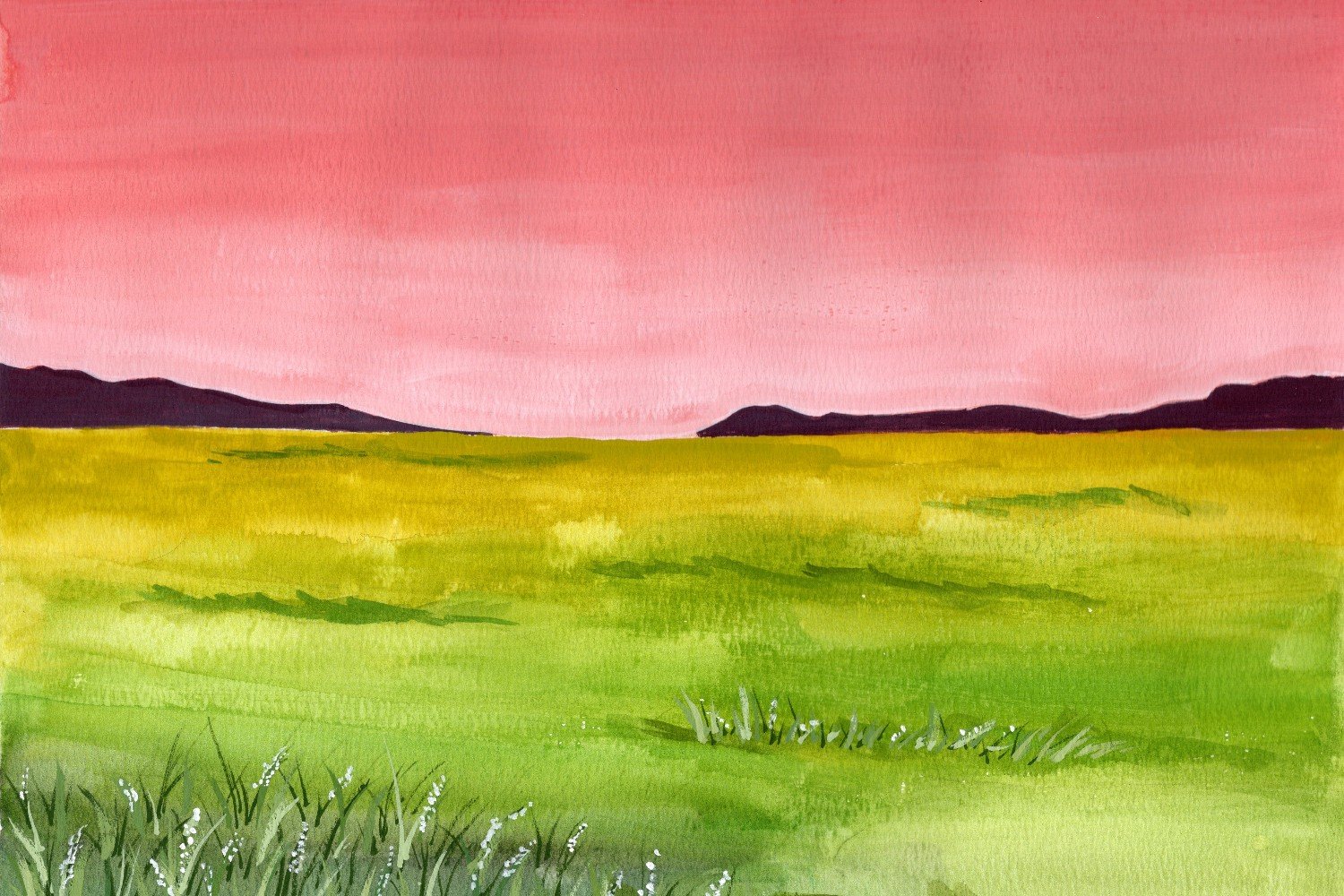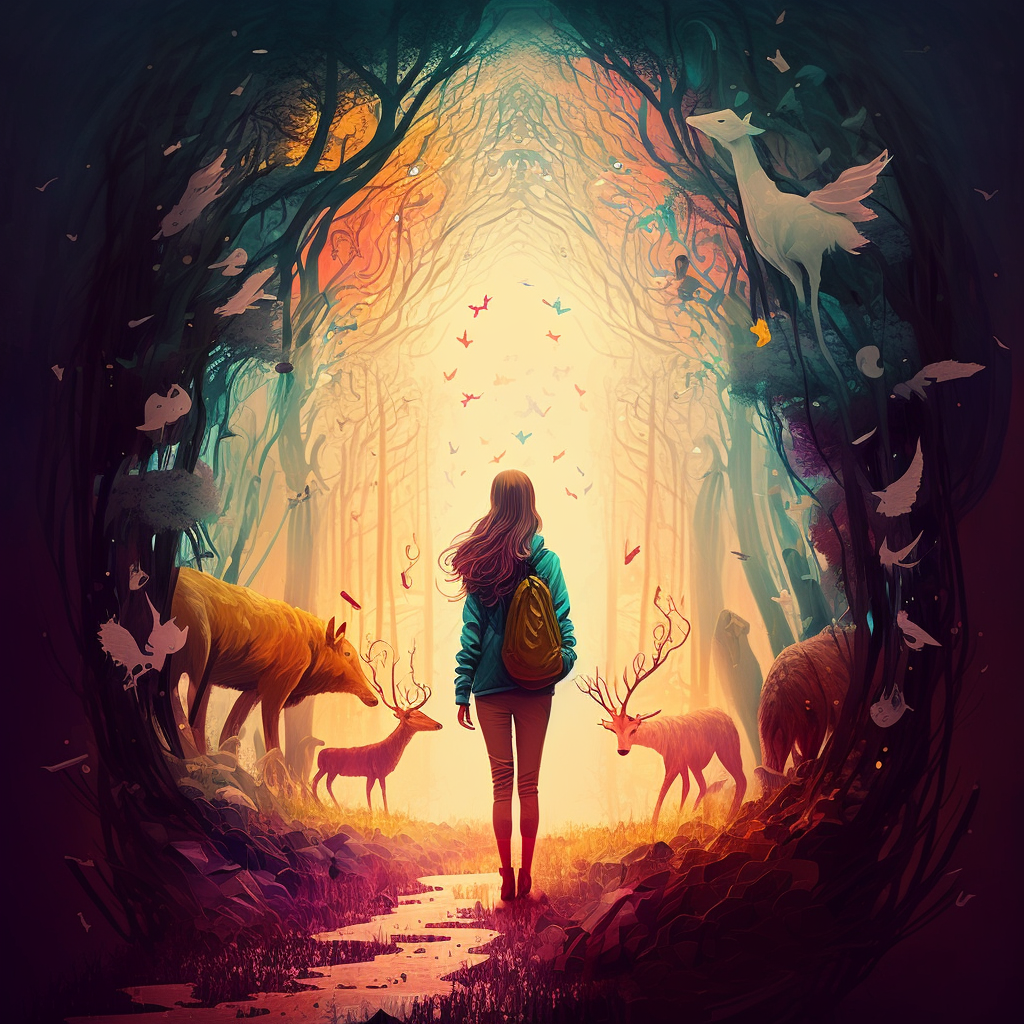Why Comparisons Hurt
Gouache painting by me
Today, I want to discuss a pivotal concept I came across on my journey toward self-acceptance. It shifted my perspective on my struggles with insecurities, self-doubt, and comparison. While understanding this concept didn’t cause an instant transformation, it planted the seed that helped me stop believing in my inferiority.
If you have social anxiety, you might know this dance when you walk into a room full of new people. At a social event, I would observe how people dressed and whether they were dolled up or more casual, like me. I’d feel uncomfortable and out of place if my clothing were too different from others. At a professional event, I often felt intimidated if people appeared more knowledgeable, confident, or put-together. I’d shake hands and introduce myself, hoping I sounded halfway competent, then struggle to find some common topic to discuss.
When I decided to start writing again, the first few years were like this but on a larger scale. I saw every other writer as my competition, and they were always more skilled and more insightful than me. If more competent and experienced people were already writing on my chosen topics, what was the point in my writing about them? What chance did I have of succeeding? I thought my ideas always had to be original, and that stopped me from getting anything out of my head. It took me two to three years to get over all that and just write.
I reacted similarly when sharing my writing on social media, particularly Instagram. I couldn’t help but compare my posts to those of others. But instead of seeing them as people I could emulate, I always saw how my words were not as perceptive, concise, or elegant. What was once an enjoyable scroll became an overwhelming litany of condemnations.
Comparisons and social status
It’s often said that comparison kills creativity. I knew it was true, but I couldn’t see how not to do it. We're always making value judgments through comparison. In school, we were judged based on what kind of grades we had, which indicates what kind of person we are and how far we’ll get in life. I was voted “Most Likely to Be Successful” in middle school—shows them what they know.
We’re also judged by how we look, with the popular kids being the most beautiful, muscular, or well-dressed (although I went to Catholic school and wore uniforms, so I thankfully didn’t experience a lot of that). We all know about the kids ostracized for their size or for being gay (if they dared come out of the closet).
But the problem isn’t the comparison itself—comparison is our natural way of navigating the world. The problem is that we believe one state of being makes a person “better than” and another state “less than.” We sort ourselves into hierarchies, with some people at the top who are celebrated and others who are diminished or ostracized. We learned how to value ourselves because other people have told us where we fall on that invisible hierarchy.
As adults, we still carry many of these beliefs about what makes us worthy, but we tend to be more sophisticated with them. As a capitalistic society that values productivity, our work and monetary status inform us of our place in the world more than anything else. Of course, any stability in our self-worth only exists if we’re in a line of work with higher status and pay. What if you’re a farmhand, a janitor, or a fast food worker? What about stay-at-home moms? What about artists? We devalue these jobs and call some “unskilled,” but who was considered “essential” when the world stopped in 2020? We found out who keeps the world running, and it wasn’t the accountants.
We may not consciously value others or ourselves by these hierarchies, but we were all raised in this paradigm. These beliefs can pop up in contexts where our source of self-worth becomes threatened, such as losing a job, changing careers, or facing retirement. In addition, women often struggle with aging and weight gain because we’ve been told all our lives that our worth comes from youth, beauty, and sex appeal. These standards haven’t been questioned as much as those based on skin color or ethnicity.
When comparisons fall apart
In the creative world, sorting ourselves into hierarchies becomes even more of a fun house of mirrors because of fewer consistent standards. A film I can’t stand can be among other people’s favorites (John Wick comes to mind as a recent example—the violence with no plot didn’t make any sense to me). The books I love won’t always fit someone else’s taste, either.
Of course, a skilled creator can make art that appeals to more people. But in the social media age, almost everything appeals to somebody. This is because art is about resonance first and skill second. We resonate with the art that reflects or inspires us. When we try to find hierarchies within art, the standards are slippery because rules can always be broken, and what is “beautiful” and “good” has a high degree of subjectivity.*
Self-worth and hierarchies
My struggles with creativity taught me that if I base my self-worth on being better than others—smarter, thinner, more self-aware, whatever—it would always be a house built on a foundation of sand. I’d feel good about myself until I entered a context where I suddenly didn’t measure up how I used to. In other words, I have to keep proving that I’m “good enough.”
Having to be “good enough” before we start is the core reason people get creative blocks—there’s no room to be bad at something before we can improve. It’s also why Imposter Syndrome is so common in entrepreneurship, computer science, or art—creative fields where standards and knowledge are constantly shifting. And yes, starting a business is a profoundly creative act—and really, so is living.
If we want to stop judging ourselves as inferior, we need also to stop seeing ourselves or others as “better.” “Better” or “worse” are two sides of the same coin. If we want to build our self-worth on a stable foundation, we have to step away from the paradigm of hierarchies and believe in true equality. Most people reading this probably already believe in equality, but we all have layers of unconscious behavior based on norms in our society. As long as our self-worth depends on being better than some people in some way, inequality will always manifest in our world. We will keep playing into the idea that because some of us are worth more than others, we deserve more. And we will always fear other people becoming better than us and taking our place.
Instead of finding our worth on a hierarchy, we can create more stable self-worth by following an internal compass. The truth is that each of us is unique. We have different skills, interests, preferences, and limitations. We all have ups and downs, and diverse experiences inform our past and present. Even if we sometimes seek similar goals, such as a stable career, a partnership, or friends and family, we each have our starting point and walk a different path. It’s only possible to sort us into hierarchies when we measure everyone by the same yardstick.
If we base our self-worth on external standards, we only feel good about ourselves if others approve of who we are. We have to keep proving ourselves to remain “worthy.” Instead, we can recognize that what matters are the personal values we’ve been following all along. When our worth is based on internal standards, we realize that it is impossible to place a value judgment on each person’s journey. Our path through life, with its own twists and turns, is as valid and beautiful as anyone else’s. A self-worth based on our uniqueness can never be taken away.
Next time you feel ashamed, insecure, or inferior, notice if you are comparing yourself to a standard that is not yours. See if you can make space between yourself and that judgment by recognizing that it’s not the whole truth. Those feelings may not resolve immediately, but your awareness can go a long way toward returning you to center.
*I want to credit William Kenower’s book, Everyone Has What It Takes, for the idea of equality in art and how “good” or “bad” art doesn’t really exist.
Thanks for reading! I’d love to hear your thoughts. Let me know down below!






























